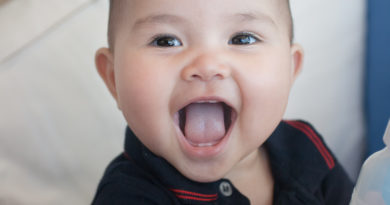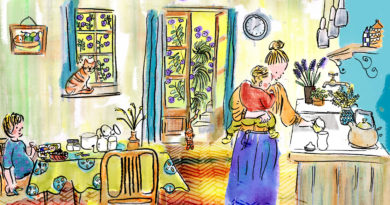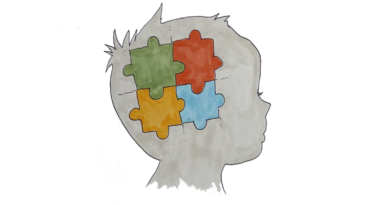Breastfeeding in the Modern Family
Families, as social groups, have been around since the beginning of mankind’s history, ensuring human survival. So the family unit itself is not modern, but it has certainly developed many modern aspects of motherhood, parenting and daily life.
All too often we are caught up with social media, television, technology, commitments and pressures of all kind. This means that we have little free time to sit and just enjoy family life. Mothers are expected to be efficient perfectionists. It seems more important to home bake for an invitation rather than serve up bakery biscuits. We may feel that spending time creating a tidy, perfect home for our guests is more important than devoting time to our babies before the guests’ arrival. Our lives are bound by norms by which a baby is not yet ready to live. Multi-tasking is an essential part of modern life, but how does it affect your peace and the comfort of your baby? These first sensitive months can affect Baby’s whole life.
Many women are committed to their careers and work and seek to unite the satisfaction or necessity of their work commitments and motherhood. While appreciating the time at home after the birth with their newborn, many do return back to work at some point. For some, this can be a time where they wonder how to follow their instinct of nurturing their babies. Breastfeeding is only one part of this scenario, and most mothers understand that breastmilk is among the greatest gift for a baby in the beginning of his life. But maintaining breastfeeding or pumping milk when you leave your baby for the workplace can be demanding. Some places of work do not facilitate this as much as they could. Mothers may feel uncomfortable about pumping in an office among workers who may not be understanding or tolerant of the time needed to do so. Work-related travel (another issue our grandmothers would probably not have been familiar with) is a further hurdle that makes pumping for your baby that much more challenging. And sadly, for some mothers the stress of these external factors can make breastfeeding seem unrealistic…especially if they would like to follow a baby-driven breastfeeding schedule with no iron-clad rules regarding, time, duration, length or frequency of breastfeed.
Another aspect of modern parenting is pacifiers (dummies). A baby’s need to suck or suckle is very strong. For an exhausted mother, who may also have sore nipples, a pacifier does give her peace and time to do the things she needs for herself. What might be the baby’s perspective? Its prime need is to suckle and nurse at the breast. Having spent nine months in the warm, dark comfort of your womb, lulled by your heartbeat and movement, all the while becoming used to the sounds of your muffled voice, your baby – with little warning – is birthed. It emerges into a bright, noisy and strange world. Babies must adjust to it, and therefore have a great need for comfort and bonding with their mother. At the same time, this corresponds to their instinct for survival. So this is an area where today’s time pressures may lead to difficulties, as many mothers cannot give unlimited time to their baby. There may be older siblings and a partner who need them, too. Or they are at work or busy with household management. So when not actually feeding them, they often hand their babies over to the comfort of a dummy or pacifier. This is no way suggests that they do so lightly or without thought. Some are lucky enough to have family or help who can share the comforting and rocking times. For those mums who do not, using a pacifier may be the only option.
Of course, as time goes by, babies spend less time at the breast and grow curious about the world around them. Feeding times become more efficient, and shorter. Nevertheless, some babies may be reluctant to give up their pacifiers. The prolonged use of pacifiers past the first and second year of a baby’s life has been debated for a long time. Some research indicates that long-term use of a pacifier can impair the hearing system[1]. It can also prevent correct development of the jaw, leading to incorrect positioning of the teeth[2]. Later, when the child talks a lot with a pacifier in his mouth, his voice and speech can be impacted. On the other hand, research in the field of brain imaging reveals that a linking takes place between a mother’s brain and her baby’s during breastfeeding. This provides a sense of security in babies and promotes bonding. My own empirical experiences from running a playgroup over three decades led me to easily recognise breastfed toddlers by their confidence when dropped off – they rarely clung to their mothers or fathers.
Hopefully these points will support mothers who wish to breastfeed past the very early months. Understanding that the breast is nature’s natural method of comfort and reassurance can give mothers the courage to continue, even though the challenges are significant. One mother in a La Leche League (LLL) meeting recently said, “My daughter started life with breastfeeding, eye contact and cuddles.” Of course, the latter two are something husbands, partners and family or friends can excel at as well. The advantages for breastfed babies are equally complemented by cuddles and limited short-term use of a pacifier.
By Elizabeth Kölük and Joanna Koch
Elizabeth and Joanna are two experienced La Leche League advisers who are happy to lead their Kilchberg LLL Group. Check our website, where there is expert and well-researched information on breastfeeding. Feel free to give one of the LLL leaders a call/email. The contact details are on the website.
Illustration by Masha Ellis
Masha is a scientist and a financial risk management professional who spends her spare time teaching families how to bring back fun to the table by following ancestral nutrition principles. She lives near Lake Zurich with her eight-year-old daughter. You can follow her on Facebook at https://www.facebook.com/masharoots/ and Instagram: @masharoots
Good luck, and do contact LLL if you would like help, information or just support. We are here to help and prepare you for breastfeeding before birth and to support you after birth; and, of course, to pass on tips for weaning baby from the pacifier once the times comes. We are all mothers who have breastfed, faced many of your problems and challenges, even exclusively breastfeeding twins or triplets. We are more than happy to share our experiences and tips so that you can enjoy your baby!
[1] http://www.hearingreview.com/2010/11/study-pacifier-overuse-may-harm-speech-skills/
2 Swiss Dental Journal SSO, Volume 28, 3-18 pp. 217-222 (https://www.swissdentaljournal.org/fileadmin/upload_sso/2_Zahnaerzte/2_SDJ/SMfZ_2006/SMfZ_10_2006/smfz-10-aktuell.pdf); Pojak, J., Effects of pacifiers on early oral development, https://www.ncbi.nlm.nih.gov/pubmed/17256438




